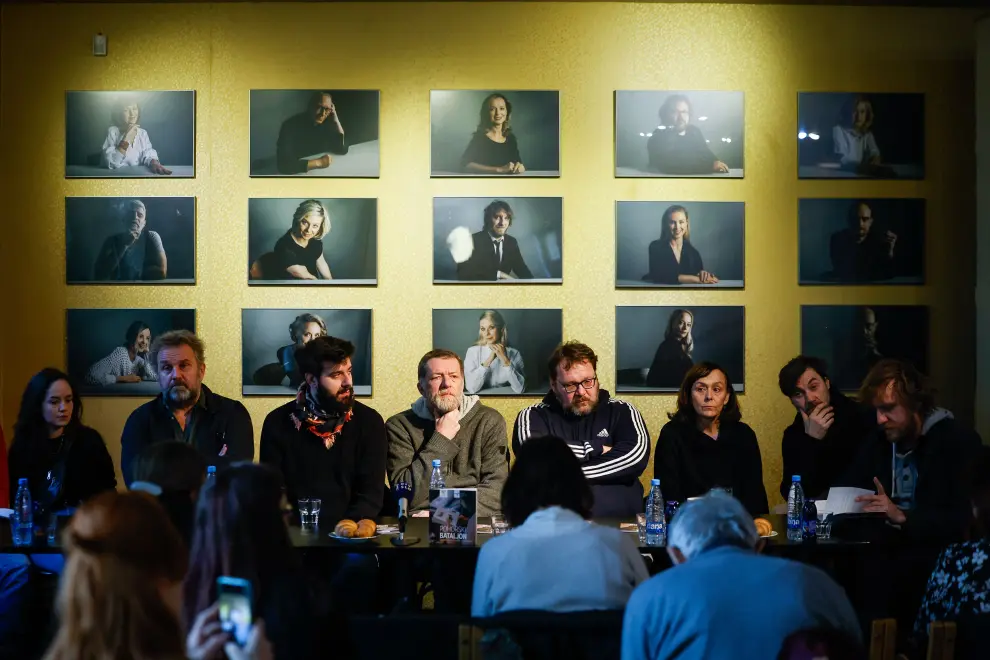Play looks behind the myth of WWII Partisan unit
Jernej Lorenci, the acclaimed Slovenian theatre director, set out to look behind the myth about a Partisan resistance unit that was slain by Nazi forces in 1943 to shed light on the machinery and devastating consequences of war in his latest production.
Pohorje Battalion focuses on the last days of the unit when its camp in the Pohorje forests above Maribor was surrounded by around 2,000 German soldiers on 8 January 1943. All of its 70 members were killed; 69 in battle and one was executed as a hostage.
The battalion and its story gained mythical proportions in the years after the Second World War, at least in the region of Štajerska, where Lorenci comes from. However, he was concerned with what was behind that myth.
Directed by Lorenci based on a script he co-authored with Croatian dramaturge and writer Dino Pešut, the play opened at the Ptuj City Theatre in September, with the Ljubljana premiere on 8 January coinciding with the 81st anniversary of the battalion's last battle. It was co-produced by the two theatre companies.
Speaking ahead of the Ptuj premiere, Lorenci said the production was not really about the Pohorje Battalion "but about an extreme experience in extreme circumstances; there was fear, hunger, the cold, stench and corpses, and none of the things that we take for granted today".
Faced with war, mostly in the form of live coverage on TV, people have got kind of used to graphic scenes of horror and destruction. "However, we cannot imagine what the real experience of war is like and what it is like to be left without shelter, food, basic human dignity and on the run," Lorenci says.
 Jernej Lorenci (centre) pictured with the cast of Pohorje Battalion. Photo: Anže Malovrh/STA
Jernej Lorenci (centre) pictured with the cast of Pohorje Battalion. Photo: Anže Malovrh/STA
Speaking ahead of the Ljubljana premiere, MGL head Barbara Hieng Samobor said the opening was an exceptional experience. She finds the production could be watched as a very consistent historical account of the battle on the one hand or as a totally emotional experience on the other hand.
And while the story of the Pohorje Battalion usually focuses on men, Lorenci also put the woman and child in the spotlight. Lorenci had known about Alfonz Šarh, a WWII national hero, and his three sons who died in the battle, but had never heard at school anything about the mother.
He says that once the past becomes history, politics and ideology kick in along with glorification and demonisation, two destructive forces with identical effects. "Today we live this [reality] radically, either glorifying or demonising, but above all generalising," he told reporters on 5 January.
The production is subtitled An Attempt at Reconstruction, which is what they sincerely tried to do. "But the final realisation is 'I don't know', so I have no right to judge either," Lorenci said.
Lotos Vincenc Šparovec, who has trained not only as an actor but also as an officer, said his military experience came in handy when working on the show. He believes that at a time when we worship instant gratification, it is hard to understand people who, in the worst winter on earth, died with a song on their lips, believing in a better world.


